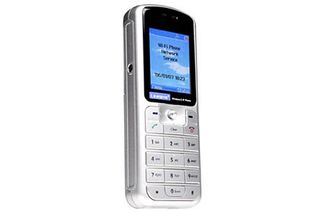
The cost of mobile telephony is falling, not just because of competition between the mobile operators, but due to an increasing number of options for using internet-based calling services directly from mobile handsets.
So-called Voice over IP (VoIP) services bypass conventional calling plans, making use of unmetered 3G and Wi-Fi data services.
Nokia is one of the biggest makers of mobile phones with Wi-Fi chips. Some high-profile devices are equipped with the short-range wireless technology, including Apple's iPhone and some BlackBerry models from RIM.
The soon-to-be-released G1 Google phone from HTC also sports Wi-Fi capability.
For Mark Laris, a Dallas-based nuclear engineer who travels the world running his consulting business, the technology saves him thousands of dollars a year on international phone bills.
Wi-Fi and VoIP lets him do most of his business and personal calls over cut-price phone services that work over the net. His only mobile phone bill is a 1,400-minute-per-month family plan from AT&T that he shares with a business partner.
"I always make VoIP calls," he says, adding that the call quality is as good as a traditional mobile phone service.
Get the ITPro. daily newsletter
Receive our latest news, industry updates, featured resources and more. Sign up today to receive our FREE report on AI cyber crime & security - newly updated for 2024.
He accesses the VoIP services using a Nokia phone loaded with a Wi-Fi chip similar to ones that that allow laptops to access the internet in smaller venues like coffee shops.
The new phones are capable of operating just on Wi-Fi - they don't necessarily have to use a mobile phone carrier at all - and when you're not in a Wi-Fi "hot spot" they ring through to your Wi-Fi carrier's voice mail.
Still, mobile VoIP is a fledgling field.
In the US, T-Mobile sells Wi-Fi phones and data plans for $10 (5.60) per month on top of regular fees. It is the only US carrier with such a package, though such deals are commonplace in the UK now.
Otherwise the market is filled with small, privately held companies hoping to make a name for themselves. They include DeFi Mobile, Fring, Gizmo5, Sipgate and Truphone.
One advantage that these new companies have in competing with established VoIP services such as Skype and Vonage is that old-style internet calling required users to be sitting in front of a computer or hooked up to a laptop to make calls.
Mobile handsets with Wi-Fi chips free them from their PCs.
Ivan Domaniewicz, a commercial airline pilot with homes in Miami and Barcelona, recently switched to DeFi Mobile from Skype. His $40-per-month (22) DeFi plan gives him unlimited calls, voice mail and phone numbers in Argentina and Spain that ring through to his Nokia handset.
"It's really helped me keep in touch with my family and friends in Argentina and Spain," said Domaniewicz, who shuttles between the US, Japan, Europe and the South Pacific.
"What's nice is that I don't have to take my computer out and start Skype-ing to talk to them. I just turn on my phone," he said.
ITPro is a global business technology website providing the latest news, analysis, and business insight for IT decision-makers. Whether it's cyber security, cloud computing, IT infrastructure, or business strategy, we aim to equip leaders with the data they need to make informed IT investments.
For regular updates delivered to your inbox and social feeds, be sure to sign up to our daily newsletter and follow on us LinkedIn and Twitter.
Most Popular






